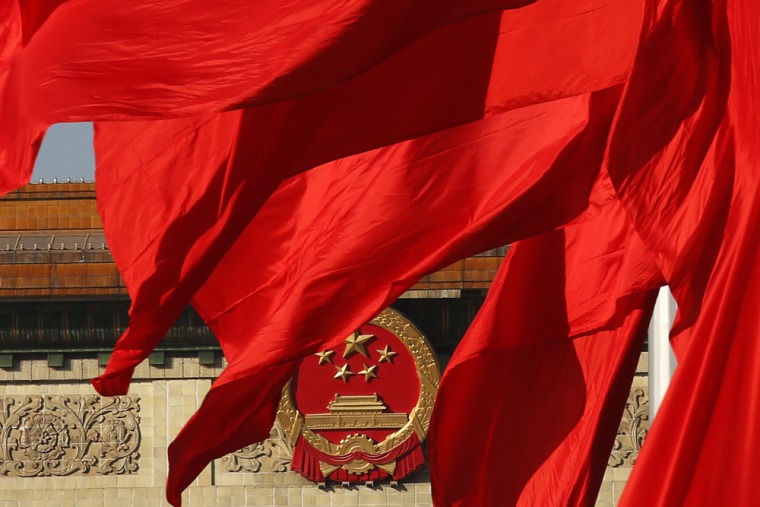China's leaders Tuesday promised a bigger role for the free market in the country's state-dominated economy as they try to overhaul a worn-out growth model.
In a brief statement issued following a four-day meeting aimed at producing a reform blueprint for the coming decade, Communist Party leaders said state ownership will remain a pillar of the world's second largest economy. But they gave an unusually strong endorsement to Chinese private businesses, saying they also are "important components" of the economy.
China aims to achieve "decisive results" in its reform push by 2020, with economic changes a central focus of overall reforms, the ruling Communist Party said.
"The core issue is to straighten out the relationship between government and the market, allowing the market to play a decisive role in allocating resources and improving the government's role," the party said in its statement.
The statement carried by the official Xinhua News Agency gave no indication the meeting considered any political reforms in China's closed, secretive one-party system. It said that a national security council would be set up to improve security strategy.
It added that it would set up a central leading team for "comprehensively deepening reform," responsible for "designing reform on an overall basis, arranging and co-ordinating reform, pushing forward reform as a whole, and supervising the implementation of reform plans".
In previous policy statements, the Communist Party had often described markets as playing a "basic" role in allocating resources, Xinhua said, meaning the new language amounts to an upgrading of its role in the party philosophy.
"They are looking to break away from government control, allowing the markets to take the lead. In the past, prices and investment decisions were predominantly made by the government," said Dong Tao, Asia ex-Japan chief regional economist with Credit Suisse in Hong Kong.
"This is a revolutionary philosophy, by Chinese standards."
Still, the party did not issue any bold reform plans for the country's state-owned enterprises (SOEs), saying that while both state firms and the private sector were important and it would encourage private enterprise, the dominance of the "public sector" in the economy would be maintained.
While the statement was short on details, it is expected to kick off specific measures by state agencies over the coming years to reduce the role of the state in the economy.
Historically, such third plenary sessions of a newly installed Central Committee have acted as a springboard for key economic reforms, and this one will also serve as a first test of the new leadership's commitment to reform.
Among the issues singled out for reform, the party said it would work to deepen fiscal and tax reform, establish a unified land market in cities and the countryside, set up a sustainable social security system, and give farmers more property rights - all seen as necessary for putting the economy on a more sustainable footing.
President Xi Jinping and Premier Li Keqiang must unleash new growth drivers as the economy, after three decades of breakneck expansion, begins to sputter, burdened by industrial overcapacity, piles of debt and eroding competitiveness.
Out of a long list of areas that the meeting was expected to tackle, most analysts have singled out a push towards a greater role of markets in the financial sector and reforms to public finances as those most likely to get immediate attention.
Some reforms could face stiff resistance from powerful interest groups such as local governments or state-owned monopolies, people involved in reform discussions have said.
Reuters and The Associated Press contributed to this report.
Related stories:
China's Communist Party promises 'unprecedented' reform - but will it deliver?
